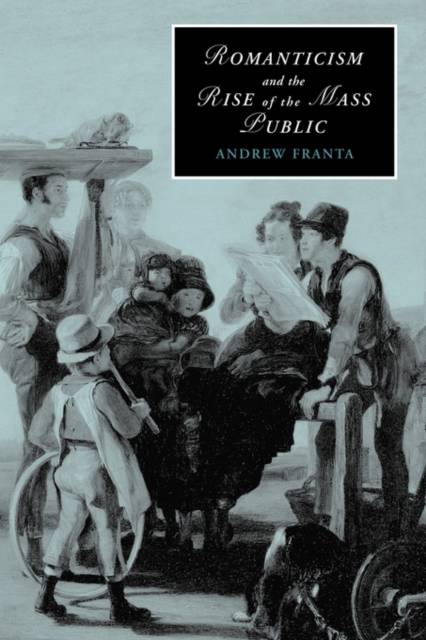
- Afhalen na 1 uur in een winkel met voorraad
- Gratis thuislevering in België vanaf € 30
- Ruim aanbod met 7 miljoen producten
- Afhalen na 1 uur in een winkel met voorraad
- Gratis thuislevering in België vanaf € 30
- Ruim aanbod met 7 miljoen producten
Zoeken
Omschrijving
Dramatic changes in the reading public and literary market in early nineteenth-century England not only altered the relationship between poet and reader but prompted new conceptions of the poetic text, literary reception, and authorship. With the decline of patronage, the rise of the novel and the periodical press, and the emergence of the mass reading public, poets could no longer assume the existence of an audience for poetry. Andrew Franta examines how the reconfigurations of the literary market and the publishing context transformed the ways poets conceived of their audience and the forms of poetry itself. Through readings of Wordsworth, Byron, Shelley, Keats, Hemans, and Tennyson, and with close attention to key literary, political, and legal debates, Franta proposes a new reading of Romanticism and its contribution to modern conceptions of politics and publicity.
Specificaties
Betrokkenen
- Auteur(s):
- Uitgeverij:
Inhoud
- Aantal bladzijden:
- 260
- Taal:
- Engels
- Reeks:
- Reeksnummer:
- nr. 68
Eigenschappen
- Productcode (EAN):
- 9780521117104
- Verschijningsdatum:
- 30/07/2009
- Uitvoering:
- Paperback
- Formaat:
- Trade paperback (VS)
- Afmetingen:
- 152 mm x 229 mm
- Gewicht:
- 385 g

Alleen bij Standaard Boekhandel
+ 129 punten op je klantenkaart van Standaard Boekhandel
Beoordelingen
We publiceren alleen reviews die voldoen aan de voorwaarden voor reviews. Bekijk onze voorwaarden voor reviews.











